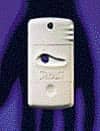
Investigators also discovered that the duration of asthma affected the chances of developing sleep apnea. For every 5-year increase in asthma duration, the chances of developing OSA after eight years increased by 10%, according to the study. Additionally, childhood-onset asthma was associated with 2.34 times the likelihood of developing sleep apnea.
Nearly 800 participants who did not have OSA when they joined the study were tracked for 8 years. During that period, 45 subjects developed asthma, and they were 48% more likely to develop new-onset sleep apnea. Researchers note that the increase lacked statistical significance because of the small sample size.
“Forty-eight percent represents a large difference. This is one result that calls for a follow-up study. If confirmed by a larger study with more asthma cases, the finding would have important clinical relevance,” said Paul Peppard, PhD, an assistant professor of population health sciences at the university and a principal investigator of the Wisconsin Sleep Cohort Study. “For now, it makes sense for clinicians to consider asthma history, as well as more traditional factors associated with OSA such as obesity, when deciding whether to evaluate patients for OSA with a sleep study.”
Researchers noted that previous cross-sectional studies had demonstrated that OSA is more common among those with asthma, but “those studies weren’t designed to address the direction of the relationship.”









